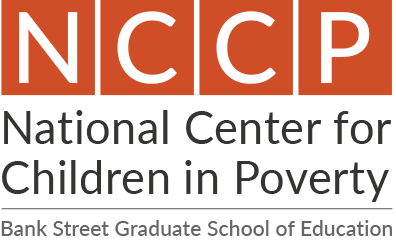Daniel Ferguson, Sheila Smith, Maribel Granja, Olivia Lasala, and Hope Cooper
Research shows that infants and toddlers involved in Child Welfare (CW) are at risk of poor social-emotional, behavioral, and learning outcomes for reasons such as family adversities, trauma, maltreatment, and separation from primary caregivers. To help policymakers address the mental health and developmental needs of infants and toddlers in these circumstances, the National Center for Children in Poverty (NCCP) at Bank Street Graduate School of Education released a new report titled Child Welfare and Early Intervention: Policies and Practices to Promote Collaboration and Help Infants and Toddlers Thrive. The publication examines successful strategies and policies around CW and Early Intervention (EI) in three states, focusing on the important role of state and local agencies in supporting the well-being of very young children.

